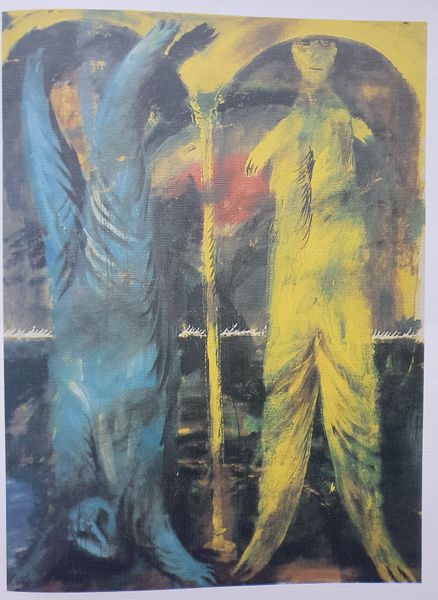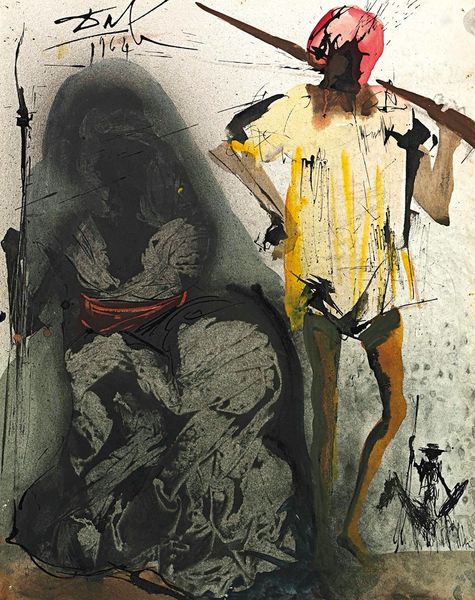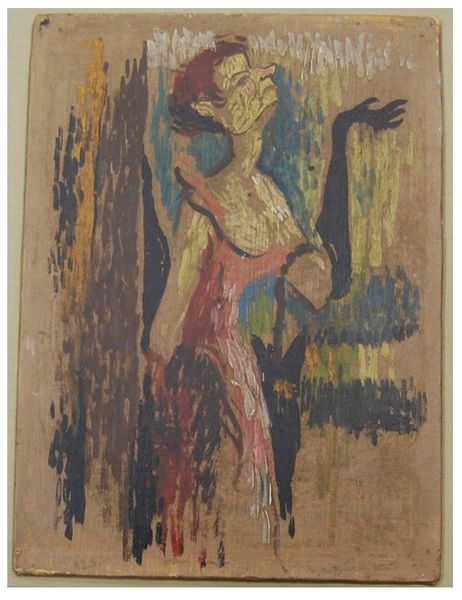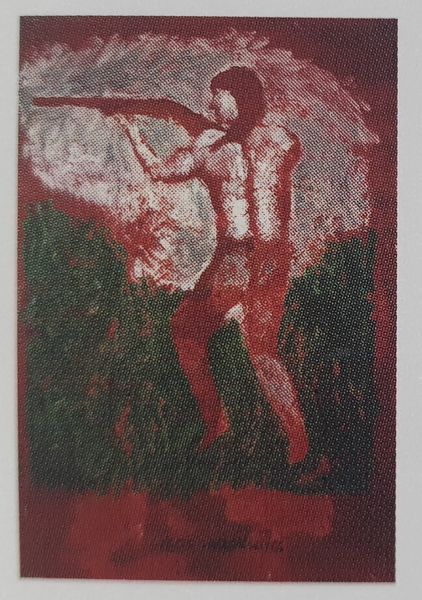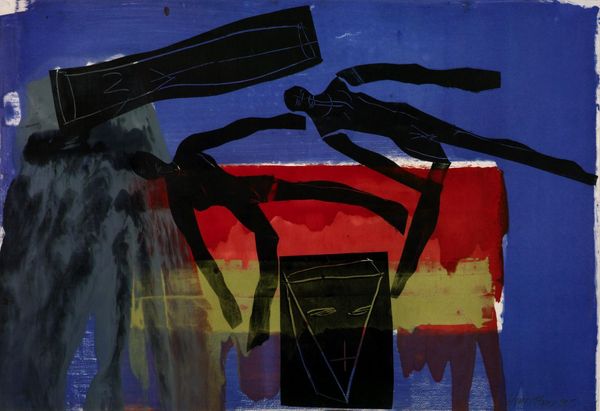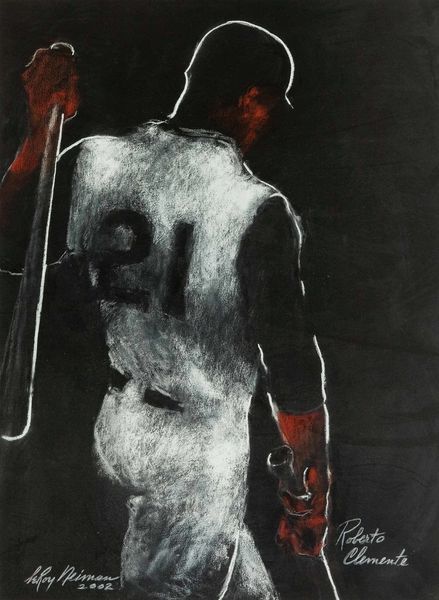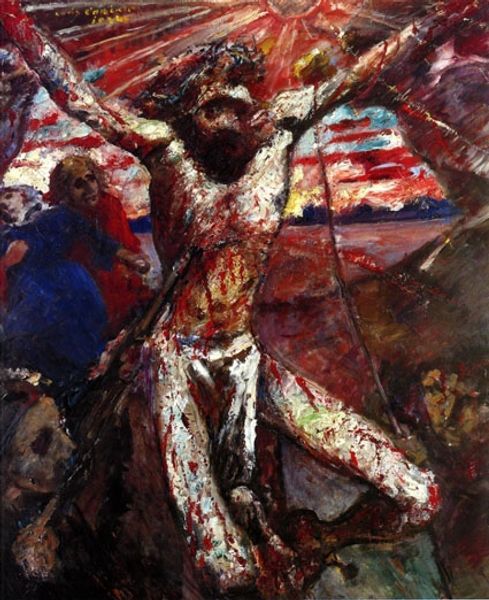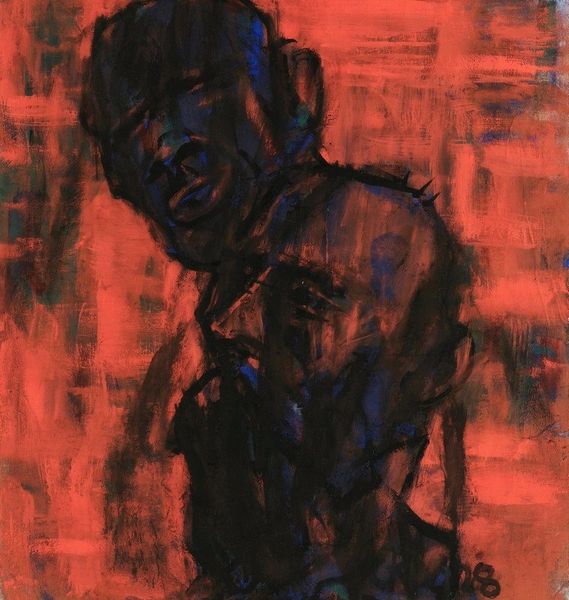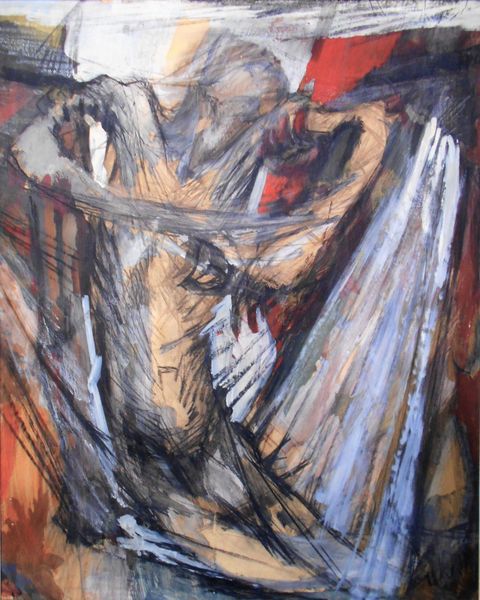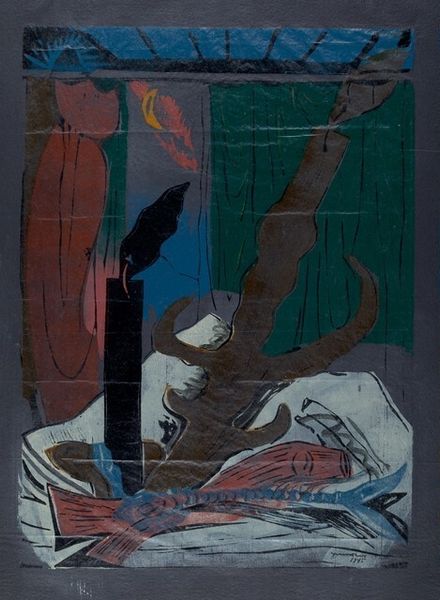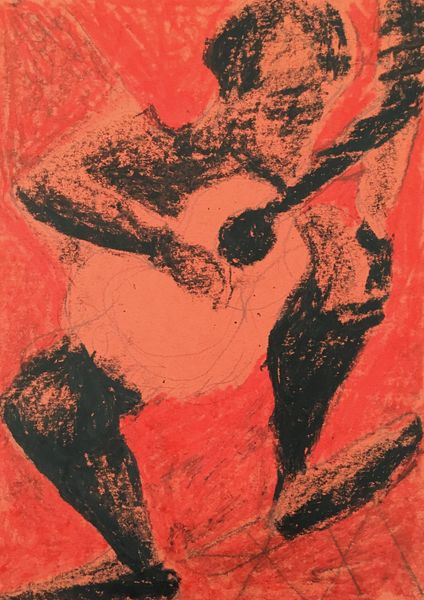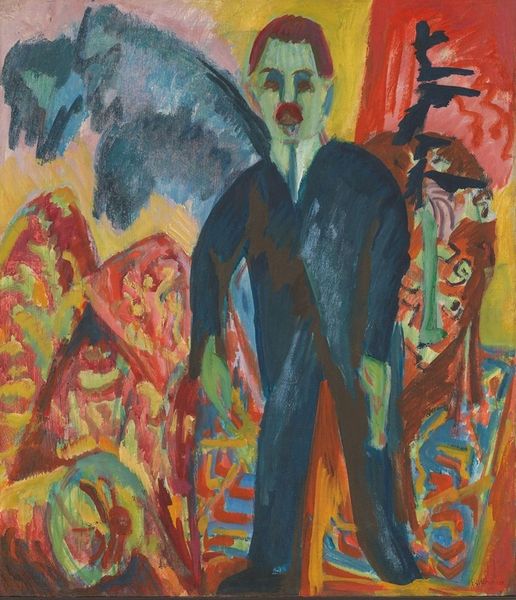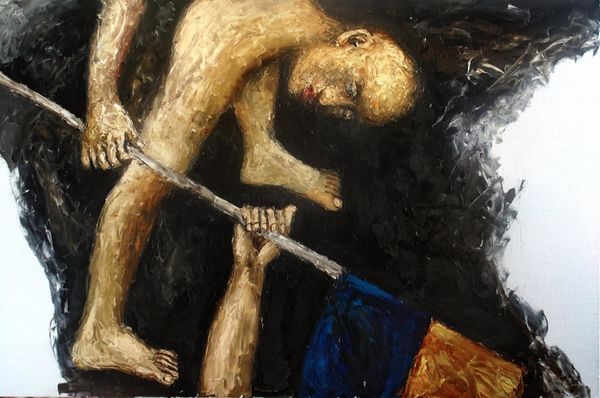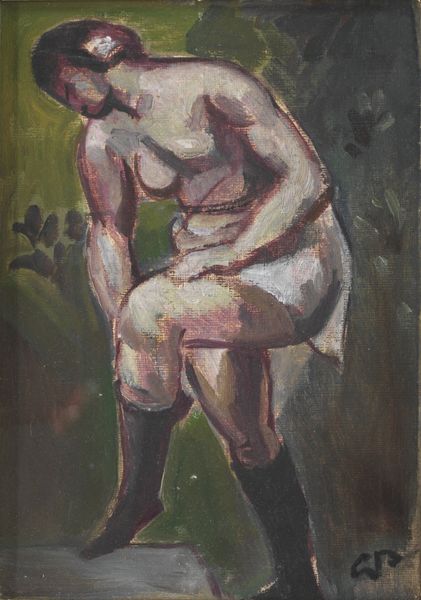
painting, oil-paint, acrylic-paint, impasto
#
portrait
#
gouache
#
painting
#
oil-paint
#
acrylic-paint
#
figuration
#
oil painting
#
impasto
#
acrylic on canvas
#
modernism
Copyright: M.F. Husain,Fair Use
Editor: We're looking at M.F. Husain's "Gandhi - Man of Peace", and though the date isn't listed, it's hard to ignore the sheer rawness of the application of paint. It feels unfinished, vulnerable almost, which is an interesting take. What jumps out at you in this piece? Curator: It's compelling, isn't it? The fragmented, almost brutal, application of paint subverts the typical heroic portrayal of Gandhi. It makes me consider the politics of imagery. How do we, as a society, construct and then consume images of revered figures? Husain challenges that consumption. Editor: In what way does Husain challenge it? Curator: Think about the cultural climate when Husain created this. India, still grappling with the aftermath of partition, its own identity forming. This isn't a glossy, state-sanctioned portrait. It presents Gandhi's humanity, his vulnerability in the face of immense socio-political turmoil. The unfinished quality could also be a commentary on the incomplete nature of the peace process itself. What do you think the significance of the impasto is here? Editor: Well, it really emphasizes the texture, making it almost tactile. Could that be about grounding the idea of peace in a tangible reality? A struggle, maybe? Curator: Precisely! Impasto makes the invisible, visible; it adds weight and immediacy. This reminds us that achieving peace is a labor. It demands active, constant engagement. Husain understood the power dynamics involved in creating national heroes and used his art to question the usual presentation of these figures. Editor: I see it now. It's not just a portrait of a man, but a statement about how we create and use symbols within society. Thank you. Curator: Absolutely, a powerful reminder that art is never created in a vacuum. The museum is the public square where that process continues today.
Comments
No comments
Be the first to comment and join the conversation on the ultimate creative platform.
